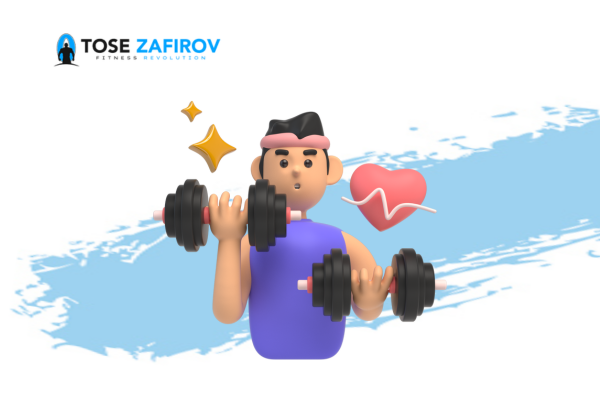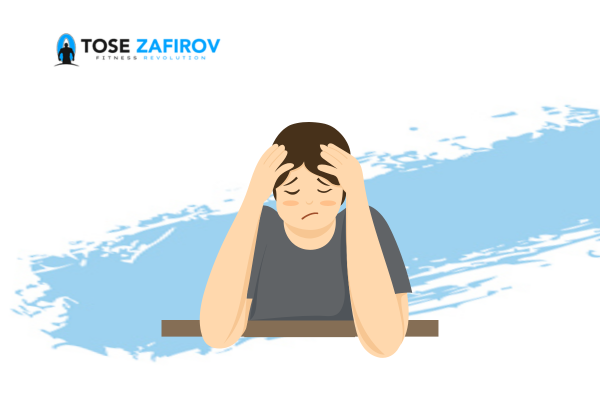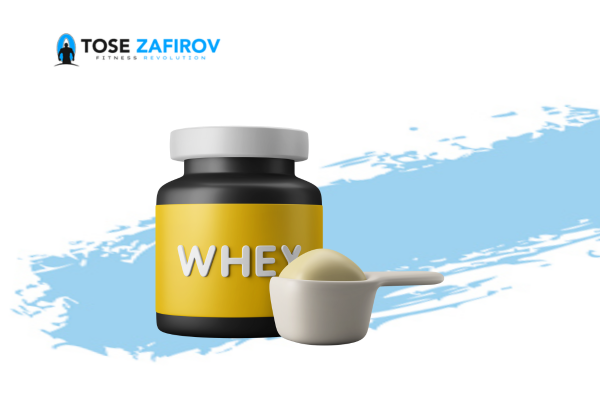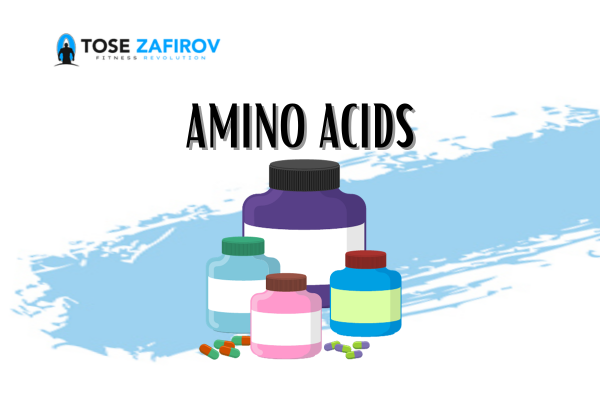Whether you’re a regular at the gym or stick to at-home workouts, you may have heard of the supposed benefits of pre-workout supplements from friends, athletes, trainers, or advertisements.
Advocates claim that these supplements improve your fitness and give you the energy you need to power through challenging workouts.
However, many experts say that they’re potentially dangerous and wholly unnecessary.
This article explores the science behind pre-workout supplements to determine whether they’re healthy.
Key Takeaways:
- Pre-workout supplements aim to boost energy and performance, with ingredients like caffeine, creatine, and nitric oxide precursors.
- Research on their effectiveness is limited, and ingredient consistency varies widely among brands.
- Consider potential downsides, such as artificial sweeteners, excess caffeine, and untested supplements.
What are pre-workout supplements?
Pre-workout supplements — sometimes referred to as “pre-workouts” — are multi-ingredient dietary formulas designed to boost your energy and athletic performance.
They’re typically powdered substances that you mix into water and drink before exercise.
While countless formulas exist, there’s little consistency in terms of ingredients. Amino acids, beta-alanine, caffeine, creatine, and artificial sweeteners are often included, but quantities of these vary widely depending on the brand.
Plus, some products may not have been tested for quality or purity.
Note
What ingredients should you look for?
Research on the effectiveness of pre-workout supplements is very limited. Nonetheless, some studies suggest that certain ingredients may benefit athletic performance .
- Nitric oxide precursors
Nitric oxide is a compound that your body naturally produces to relax blood vessels and improve blood flow.
Pre-workout supplements often include some of the common compounds that your body uses to make nitric oxide. These include L-arginine, L-citrulline, and sources of dietary nitrates, such as beetroot juice.
Research suggests that supplementing with these compounds boosts oxygen and nutrient transport to your muscles, potentially enhancing athletic performance.
However, while L-citrulline has been shown to boost exercise performance, studies note that L-arginine is broken down before it reaches your bloodstream. Thus, while it boosts nitric oxide production, it doesn’t benefit exercise performance.
Overall, as most of the available research on nitric oxide focuses on young men, it remains unclear whether these results apply to other populations. More research is needed.
- Caffeine
Caffeine is frequently used in pre-workout supplements to increase energy and focus.
This stimulant may improve mental alertness, memory, and exercise performance, as well as help reduce body fat .
- Creatine
Creatine is another chemical compound naturally produced in your body. It’s primarily stored in skeletal muscle, where it plays a role in energy production and muscular strength .
It’s often included in pre-workout formulas but also sold as a standalone supplement. It’s particularly popular among weightlifters, bodybuilders, and other power athletes.
Research suggests that supplementing with creatine can increase your body’s stored supply of this compound, thus improving recovery time, muscle mass, strength, and exercise performance .
- Beta-alanine
Beta-alanine is an amino acid that’s included in many pre-workout formulas because it may help prevent acid buildup in your muscle tissue, thus allowing your muscles to work harder and longer.
While research supports its effectiveness, it’s important to note that consuming this compound may cause a tingling sensation. While it’s completely harmless, you may find it unpleasant.
- Branched-chain amino acids (BCAAs)
Some pre-workout formulas include branched-chain amino acids (BCAAs), which have been shown to help increase muscle growth and decrease muscle soreness when taken before a workout.
Nonetheless, BCAAs are naturally found in dietary sources of protein, so you may already be consuming an adequate amount throughout the day.
- SUMMARY
Certain ingredients in pre-workout supplements, such as creatine, caffeine, beta-alanine, BCAAs, and nitric oxide precursors, have been shown to support athletic performance.
What should you avoid?
Although pre-workout supplements are generally safe, they aren’t completely risk-free.
If you’re thinking about adding them to your workout regimen, be sure to consider their potential downsides first.
- Artificial sweeteners and sugar alcohols
Pre-workout supplements frequently contain artificial sweeteners or sugar alcohols.
While these ingredients enhance flavor without adding calories, some sweeteners may cause intestinal distress and discomfort.
In particular, a high intake of sugar alcohols may trigger uncomfortable symptoms like gas, bloating, and diarrhea — all of which can disrupt your workout .
Some people report a similar digestive response from eating certain artificial sweeteners like sucralose. However, such symptoms haven’t been scientifically proven.
You may want to avoid pre-workout formulas that contain large quantities of these sweeteners. Otherwise, try a small amount first to see how you tolerate it.
- Excess caffeine
The major energy-boosting element of most pre-workout supplements is caffeine.
Excessive intake of this stimulant can lead to side effects, such as increased blood pressure, impaired sleep, and stress .
Single servings of most pre-workout formulas contain about as much caffeine as you’d get in 1–2 cups (240–475 mL) of coffee, but if you’re also getting this compound from other sources throughout the day, you may accidentally consume too much.
- Supplements that haven’t been third-party tested
In the United States, dietary supplements like pre-workouts are regulated by the Food and Drug Administration (FDA) as foods, not as drugs. Due to regulatory gaps, product labels may be inaccurate or misleading.
If supplement safety and quality are compromised, you may inadvertently consume banned substances or dangerous amounts of certain compounds .
Note
Certain ingredients in pre-workout supplements may lead to adverse effects. Always check the label before purchasing to ensure that your product has been tested by a third party.
Should you take a pre-workout supplement?
Pre-workout formulas aren’t for everyone.
If you frequently lack energy or have difficulty making it through your workout, consider other lifestyle factors like hydration, sleep, and diet, rather than resorting to supplements.
Moreover, the variability in pre-workout supplements’ ingredients makes it difficult to determine their effectiveness.
They can also be expensive — and research hasn’t proven them to be more effective than whole foods that provide the same nutrients. For example, a banana and a mug of coffee is a suitable, cheap alternative to a pre-workout supplement.
That said, if you find that pre-workout formulas work for you, there’s no reason to stop. Just be mindful of their ingredients and your total intake — and keep the following factors in mind.
- How to take pre-workout supplements
Most pre-workout products include instructions for how to take them.
While you should follow these instructions, it’s not a bad idea to start with a smaller serving so you can assess your tolerance — especially if the supplement includes caffeine or beta-alanine.
Remember, if the supplement provides beta-alanine, don’t be surprised if you notice a tingling sensation. It’s completely harmless, but some individuals may find it uncomfortable.
Most pre-workout supplements can be taken about 30–60 minutes before you work out. This allows enough time for the ingredients to reach your bloodstream and kick in.
Lastly, if your pre-workout contains caffeine or other stimulants, consider the time of day that you take it since it may disrupt your ability to fall asleep.
- Whole food alternatives to pre-workout supplements
Regardless of whether you choose to use a pre-workout supplement, fueling for exercise is incredibly important and can make a big difference in how you feel and perform in your training session .
The International Society of Sports Nutrition (ISSN) has found that consuming carbs and protein before and after exercise can improve both strength and body composition .
Think ahead to your workout so that you can plan a balanced meal containing carbs, protein, and fat about 2–3 hours beforehand. For example, try a veggie omelet and whole wheat toast with avocado spread, plus a side of fresh fruit.
If time gets away from you, try an easily digestible source of carbs like a piece of fruit about 30–60 minutes before your workout.
If you skip the pre-workout supplement but still want the performance-boosting effects found in caffeine, drink a cup of coffee alongside a pre-workout snack.
Note
Pre-workout supplements can’t replace a balanced diet, good quality sleep, and adequate hydration. If you prefer to use one anyway, be conscientious about its ingredients and your total intake.
The bottom line
Pre-workout supplements are primarily used to enhance physical performance and energy levels, but research doesn’t back many of their supposed benefits.
Most pre-workouts are considered safe for healthy adults, but they aren’t essential for health or performance .
So while they aren’t necessarily bad for you, they aren’t especially good for you either.
While some common ingredients like caffeine, creatine, and beta-alanine have been shown to be effective when taken before a workout, there’s no standardized formula for pre-workouts.
Plus, many aren’t regulated, so it’s important to opt for supplements certified by a third party if you decided to take them.
If you have any health conditions, you may want to check with your doctor before trying a pre-workout supplement.
Above all, whether you use pre-workouts or not, make sure you’re following a balanced diet, drinking plenty of water, and getting sufficient sleep.





